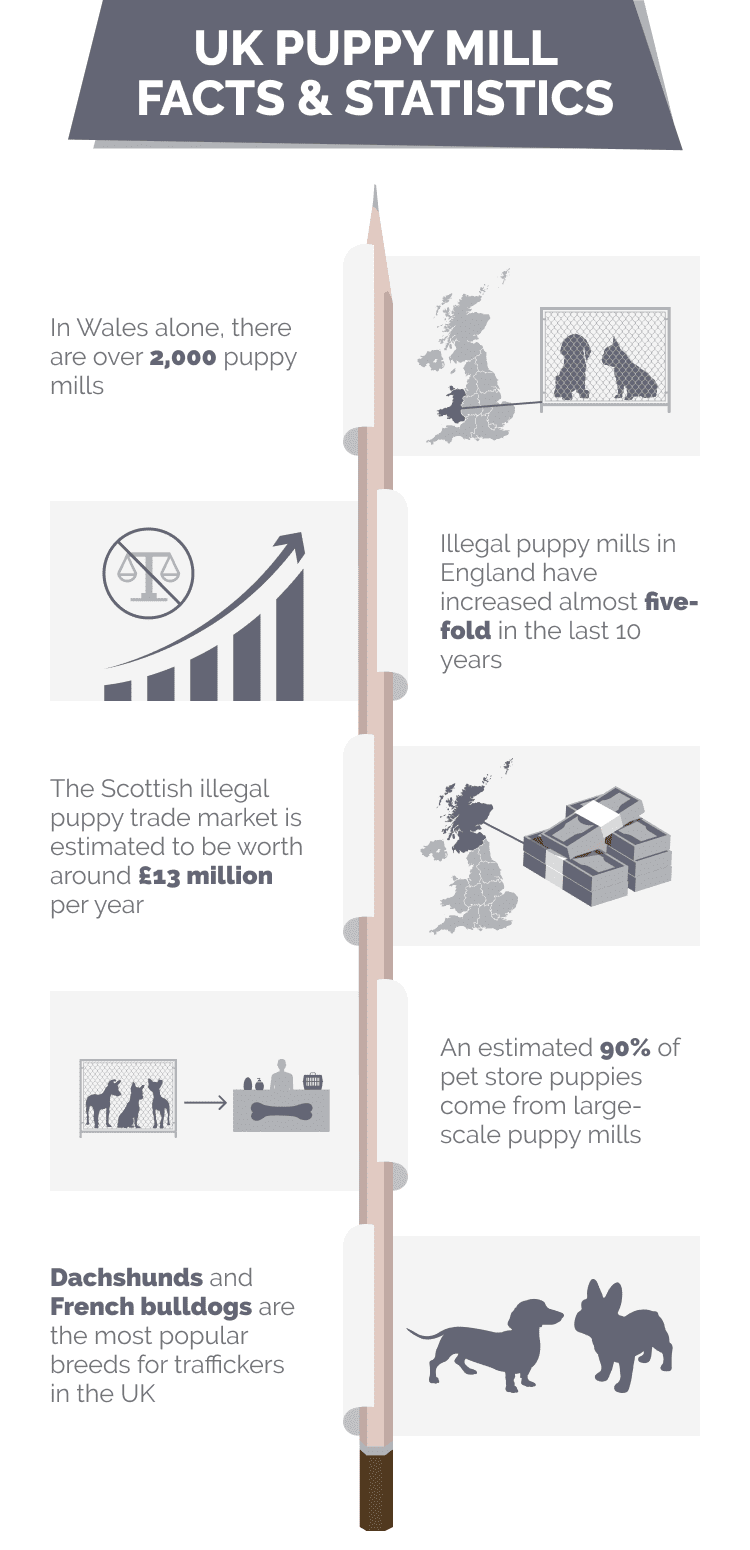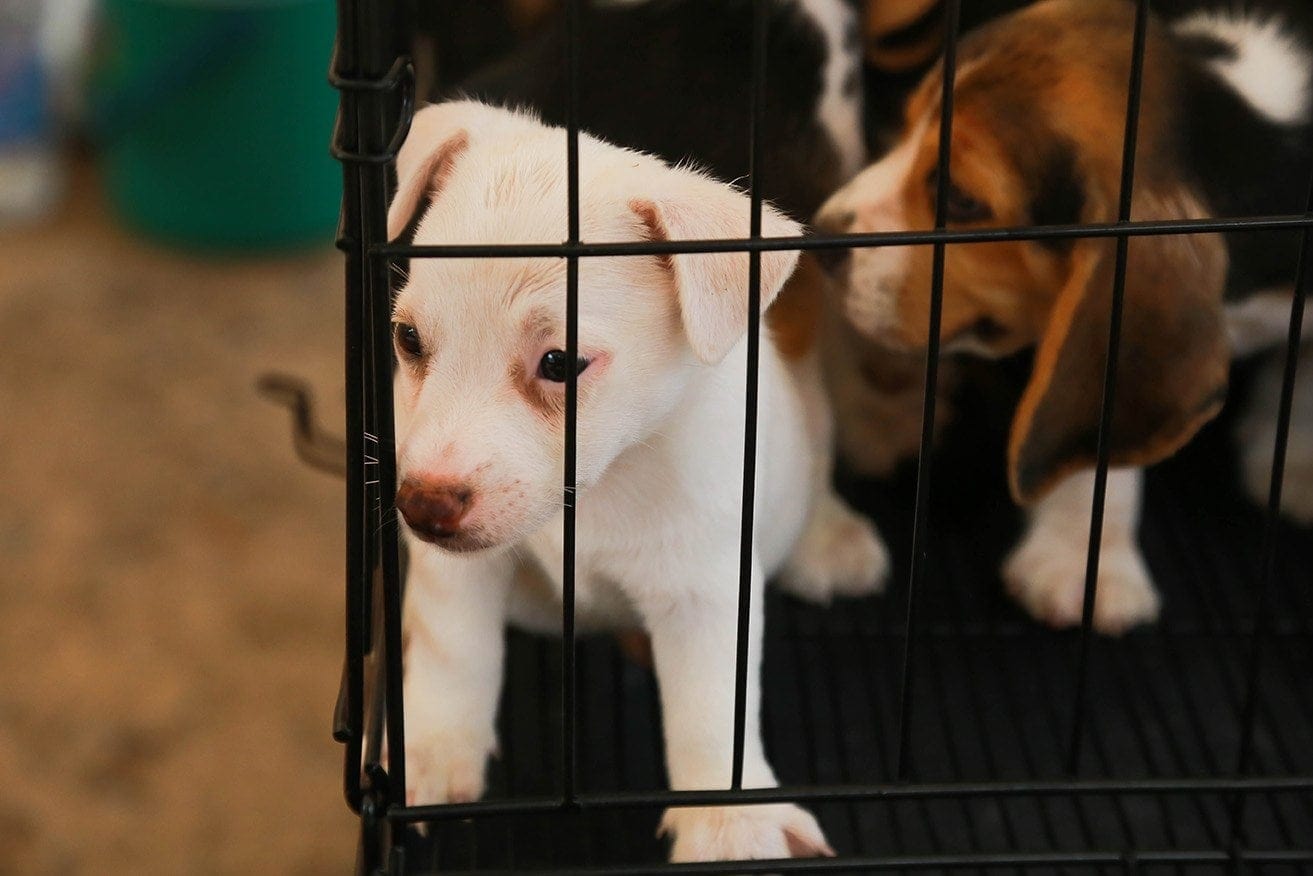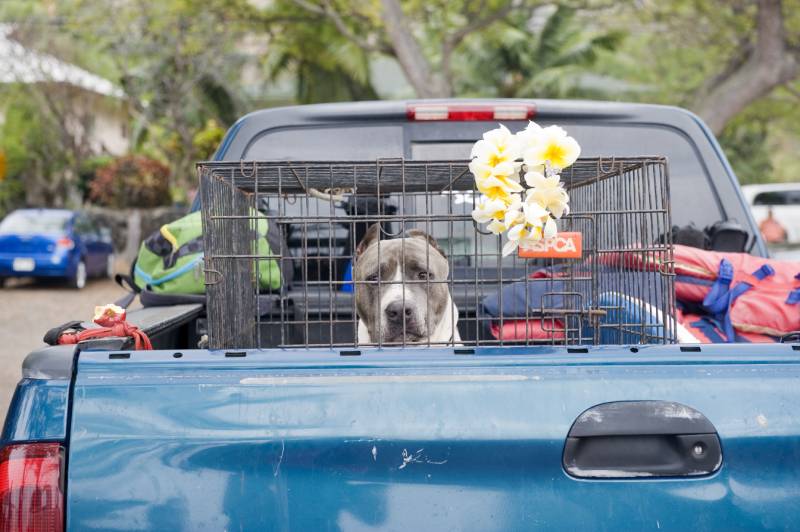16 Shocking UK Puppy Mill Statistics & Facts (2024 Update)

Updated on

Click to Skip Ahead
Note: This article’s statistics come from third-party sources and do not represent the opinions of this website.
The term puppy mill doesn’t exactly paint a sweet picture of happy pups running around healthy and free. The term mill implies that it is operated like a factory, and the word puppy does not belong in front of that term.
Sadly, the health and happiness of the mill dogs are overlooked, resulting in trauma, behavioral conditions, and health issues. Like most countries, dogs are the most common pet in the UK. If you want to add a puppy to your home, it’s important to know its journey, and these statistics and facts can help you understand the business of puppy mills and what is being done to prevent these operations. The figures also give us hope, so it’s essential to share that too.
Top 16 UK Puppy Mill Statistics
- In Wales, there are over 2,000 puppy farms.
- An estimated 80,000 dogs are sold in the United Kingdom each year as part of the country’s legalized puppy trade.
- Approximately 87% of puppy trading that is being reported is being done over the internet.
- The illegal puppy trade is extensive and lucrative, with the Scottish market estimated to be worth around £13 million per year.
- Most pet store puppies come from large-scale puppy mills.
- Over 600 puppies are passed through quarantine in a year.
- Dachshunds and French bulldogs are the most popular breeds for traffickers.
- The arrival of heavily pregnant female dogs is a concerning trend. Approximately 450,000 puppies in the UK are unregistered, indicating they are smuggled undetected.dog
- Dogs transported to the United Kingdom go for more than 12 hours without food or water.
- Before getting a pet, 70% of UK pet owners do some research.
- Figures show that reports of illegal puppy farming in England have increased almost five-fold in the last 10 years.
- In Wales, RSPCA reports that illegal dog breeding investigations have increased by 63%.
- To combat Puppy mills, a new animal welfare bill was passed in 2020.
- A couple in Dorset pleaded guilty to causing unnecessary suffering, not meeting the care needs of the animal, and breeding and selling without a license for 14 months.
- Puppy breeders in Wales were fined for selling seven litters in one year.
- A couple in the United Kingdom earned up to £372,000 by forcing animals to have more than one litter per year.

The Business of Puppy Mills
1. In Wales, there are over 2,000 puppy farms.
(Esdaw.eu)
Irresponsible breeding is still prevalent in the UK, with Wales alone running over 2,000 of these establishments. It is heartbreaking and shocking to consider how many more exist in the rest of the country. These mills will continue to breed and produce as long as there is a demand for puppies and the industry is supported.
The sad part is that many first-time pet owners are unaware of how they support these businesses, which is why educating and bringing awareness to the issue is imperative.

2. An estimated 80,000 dogs are sold in the United Kingdom each year as part of the country’s legalized puppy trade.
(Washington Post)
Approximately 80,000 dogs are sold in the United Kingdom each year as part of the country’s legalized puppy trade, which includes pet stores, farms, and people’s homes. Unfortunately, puppies are taken away from their mothers too soon, resulting in traumatized dogs. On a positive note, there is a growing trend in the industry that is making it harder for pet stores and third-party sellers to sell puppies.
3. Approximately 87% of puppy trading that is being reported is being done over the internet.
(Country Living)
The internet is a great platform to sell just about anything. But something meant to make life easier and more convenient has also created great opportunities for criminals. A first-time buyer who is none the wiser can easily be convinced by the false information and pictures provided online.

4. The illegal puppy trade is extensive and lucrative, with the Scottish market estimated to be worth around £13 million per year.
(Consumer Watch)
The illegal puppy trade is an extremely profitable market. It may be safe to say that it is just as profitable, if not more so, as the illegal drug market. With the ease of online sales and unaware consumers, the business is booming, and money-hungry “entrepreneurs” are jumping on the bandwagon for financial gain. The Scottish market alone is estimated at £13 million a year.
5. Most pet store puppies come from large-scale puppy mills.
(HSI)
At least 90% of pet store puppies are bred in puppy mills. However, puppy mill puppies are not only sold in pet stores. Most responsible breeders will never sell their puppies to a pet shop as they prefer to meet the family in person. Any hesitation from the breeder to answer questions or to show paperwork are red flags that may indicate a puppy mill.

Shocking Statistics, Facts, and Trends
6. Over 600 puppies are passed through quarantine in a year.
(Telegraph)
Quarantine kennels are a group of buildings for dogs that have entered the UK but do not meet the pet travel rules. Many of these dogs are victims of puppy trafficking, and it’s usually obvious as they arrive in deplorable conditions. With over 600 puppies traveling through quarantine within a year, it’s heartbreaking to think how many of them are trafficked.
To prevent the spread of rabies, UK laws previously required pets entering the country to spend 6 months in quarantine, a practice dating back to the 1880s. Frustrated pet owners, combined with the development of effective rabies vaccines, forced the government to reconsider its policy.
Dogs from certain countries can now enter Britain without being quarantined if they have a microchip, a rabies vaccination 21 days before travel, and have been treated for tapeworms.
7. Dachshunds and French bulldogs are the most popular breeds for traffickers.
(Telegraph)
Dog breeds such as pugs, dachshunds, chihuahuas, Shih-Tzus, French bulldogs, and poodle crosses like the cockapoo are the most popular breeds for trafficking. The two most common breeds in the UK are French bulldogs and dachshunds.

8. Approximately 450,000 puppies in the UK are unregistered, indicating they are smuggled undetected.
(Telegraph)
There are approximately 9 million dogs in the UK, with an average life expectancy of 12 years, implying that 750,000 puppies must be born each year to maintain that number. Around 240,000 puppies are registered through Kennel Club breeders, backstreet breeders, and home breeders, bringing the total to approximately 300,000 puppies. That means that about 450,000 puppies are unaccounted for.
9. Dogs transported to the United Kingdom go for more than 12 hours without food or water.
(Sentient Media)
With the increase in demand, there is an increase in puppy trafficking. If you think that they travel better than how they are housed and cared for, the sad news is that the traveling conditions are shocking. Dogs sent to the UK often have to endure over 12 hours of traveling while receiving no food or water.
The conditions are also usually cramped, making temperatures warmer and more stressful. Some dogs can regulate their temperature, while others can’t, resulting in an unjustifiable demise.

Hopeful Statistics
10. Before getting a pet, 70% of UK pet owners do some research.
(BVA.co.uk)
Puppies from puppy mills are usually sold online or from pet stores, and sadly, unsuspecting owners purchase these dogs. Thankfully, 70% of pet owners in the UK conduct some research before buying a pet, but one in every four owners (5.2 million people) admit to doing no research, which unfortunately fuels the problem.
11. Figures show that reports of illegal puppy farming in England have increased almost five-fold in the last 10 years.
(BBC)
As awareness grows, more people are filing reports of illicit puppy farming. While the industry is still rife with violators, figures show that reports of illegal puppy breeding have increased significantly in the last decade and continue to do so.

12. In Wales, RSPCA reports that illegal dog breeding investigations have increased by 63%.
(Hope Rescue)
As the public becomes more aware and willing to report illegal breeding practices, investigations have increased, particularly in Wales, with an increase of 63%. This is positive news, as we know that Wales has over 2,000 puppy farms. Local government prosecutions also doubled in 2021, which indicates significant growth.
13. To combat Puppy mills, a new animal welfare bill was passed in 2020.
(gov.uk)
On Monday, 6th April 2020, the UK government passed a law to ban third-party sales of pets. Lucy’s Law states that anyone in the UK looking for a new puppy must now buy from a breeder or consider adopting from a rescue center. If a business sells puppies without a license, they could face an unlimited fine or up to 6 months in prison.

Prosecuted Breeders
We decided to share these facts to celebrate the work of those investigating and prosecuting unethical breeders.
14. A couple in Dorset pleaded guilty to causing unnecessary suffering, not meeting the care needs of the animal, and breeding and selling without a license for 14 months.
(news.Dorsetcouncil.go.uk)
A pair of breeders from Dorset were investigated by the Dorset Council for several years for illegal breeding and failing to meet the needs of the animals. They pleaded guilty and were ordered to pay £150,000 or face up to 18 months in prison.
15. Puppy breeders in Wales were fined for selling seven litters in one year.
(Wales Online)
A couple from Caerphilly was fined for breeding puppies without a license and selling them off social media during the lockdown. They had been doing this for years, but over the lockdown period, the number increased significantly. It was evident that during this time, in fact, in only the space of a year, they kept eight females for breeding and produced seven litters.

16. A couple in the United Kingdom earned up to £372,000 by forcing animals to have more than one litter per year.
(The Guardian)
Karl and Victoria Shellard earned up to £372,000 by forcing animals to have more than one litter per year. They bred at least 67 litters over a 6-year period, with one dog delivering six litters in 4 years, and sold the pups for up to £20,000 each time. They were both fined £19,000 and ordered to repay £372,531 or face 2 years in prison.
Frequently Asked Questions About Puppy Mills
How Do I Spot a Puppy Mill Puppy?
Anyone who buys a puppy does so with the belief that they had a good start in life. The sad reality is that many of those puppies are products of puppy mills, and by buying those pups, we are supporting the industry unknowingly. Some clear signs will indicate that the puppy comes from a mill. This is what you can look out for.

- The puppy will appear unclean and unhealthy. After spending so much time in poor conditions, it will show on their coat.
- They are usually unvaccinated
- If the breeder doesn’t allow you to see the puppies parents or provide information
- A clear red flag is if the breeders won’t meet you at their home
- Puppy mill puppies will usually have behavioral issues such as anxiety or aggression
- If the puppy is too young to leave its mother, it’s most likely a mill puppy
- Pet store puppies are often mill puppies
What Happens to Dogs in Puppy Mills?
Puppy mills breed puppies at high volumes, with financial gain being their only goal, resulting in dogs and puppies being neglected to a shocking degree. Females are usually bred at every opportunity, and they are often killed once they are tired and depleted.
The pups are usually taken away from their mothers too early, and the dogs in these mills are often kept in cramped cages with little attention or room to play or exercise. Puppies can often be malnourished due to contaminated food and water bowls and are usually found with health issues such as tooth decay, ear infections, dehydration, and even swollen or hurt paws from the wire cages.
What Do Puppy Mills Do with Unsold Puppies?
Puppy mills will usually keep lowering their price until they are low enough to be sold to a pet store. Sadly, some dogs will be abandoned and often end up in shelters or the streets.

How Can We Stop Puppy Mills?
You can consider adopting a pet from a shelter instead of a pet shop. If you are looking for a specific breed, you can search online for responsible breeders or call the local shelters. Unsupported puppy mills will eventually cease to exist without funding, but that could take many years.
Conclusion
Puppy mill dogs are bred for quantity and financial gain, resulting in sickly and traumatized animals. With millions of unwanted dogs dying in animal shelters each year, there is simply no motive to breed and sell animals for the pet-shop and online trade.
There would be no financial incentive for puppy mills if there was no support, and the suffering these dogs and puppies have to endure would end. It’s up to us to spread awareness so these mills are no longer supported.









